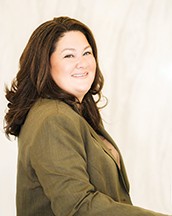Exit Planning Considerations

By Evelyn M. Joiner, CPA, CDFA™
Death. Long-term disability. Two uncomfortable topics too often avoided. Despite the sensitivity of these topics, most recognize the importance of discussing them with loved ones. But, it is equally important to discuss plans with your attorney, accountant, and financial advisor. Planning for these events are not just for the wealthy; there are several issues that affect everyone equally. Here are some things to consider.
Elder Planning
Because no one wants to think about death or disability, people wait too long to plan. By procrastinating, you could find yourself scrambling to pay unexpected bills or watch as your life-time savings and retirement diminish to nothing. Many miscalculate their living expenses or neglect to buy proper insurance. These errors could be avoided by timely planning with qualified professionals. The right professional will help you ensure you have the resources needed to pay for long-term medical care and protect your assets.
Do Not Do It Yourself
It is important to discuss your intentions with the proper professionals. Several times, I have had clients incur a tax bill because something was not done correctly. For example, older parents may have titled property in the names of their children thinking they were protecting the property from estate taxes. But, by transferring title, the parents actually made a gift, transferring their cost basis. The result is a much larger capital gain to the children when they dispose of the property. If the parents had left title in their name and transferred the property at death through their estate, the children would have received a stepped-up basis in the property equal to the fair market value of the property at the time of the parent’s death. This would have resulted in no capital gain (and no tax liability) to the children if they sold the property shortly after death.
Power of Attorney
You may have thought about who you would trust to make medical decisions if you could not. You may have even executed a medical directive and power of attorney to address these concerns. Equally important is a financial power of attorney so who you trust can access your accounts in the event you become incapacitated or die. You can designate in the power of attorney that it does not become effective until you are considered incapacitated by a doctor. You can also designate which accounts your agent is authorized to access, what authorities you grant to your agent, and even choose more than one agent to make joint decisions.
Organize Documents
If you become incapacitated, what documents or information will others need to put your affairs in order? Things like your will and medical directives are vital, but information such as medications you take, passwords to important accounts, banking information, tax returns, and life and health insurance policies are equally important. Do not forget to include the names of your attorneys, accountants, financial advisors, and doctors. Have one place where your important documents and information are kept, and be sure to inform those who need to know where to find this information.
Talk to your accountant to determine what tax information might be needed. For instance, if you own stocks, property or businesses, the cost basis of your assets will be needed to file final tax returns upon your death. Improper cost basis information could result in unexpected taxes due to those you leave behind.
Update Documents Regularly
Your plan should be reviewed on a regular basis and when any major life-changing event occurs. Review your designated beneficiaries on all life insurance and retirement accounts. By designating a beneficiary on these accounts, those assets can be transferred more smoothly and efficiently. If you marry or divorce, your plan will likely need updating. If a beneficiary dies, your beneficiary designations will need to be updated.
Planning for your exit is not a comfortable topic to discuss. However, it is important to plan for and it is crucial to do it while you still have all your faculties. Proper planning with your accountant can also ensure you have proper cash flow and reduce the tax liability to yourself and your beneficiaries.
Evelyn M. Joiner, CPA, CDFA™ is a partner at the firm of Sparano, Vincelette & Joiner, CPAs in Wilmington. She started her accounting career in 1999, obtained her Master’s degree in Taxation, and is the only CDFA™ in Delaware who is also a CPA. You can find her on LinkedIn at www.linkedin.com/in/evelynjoiner.
Headshot by Shannon Adelson of Adelson Media, Inc.


